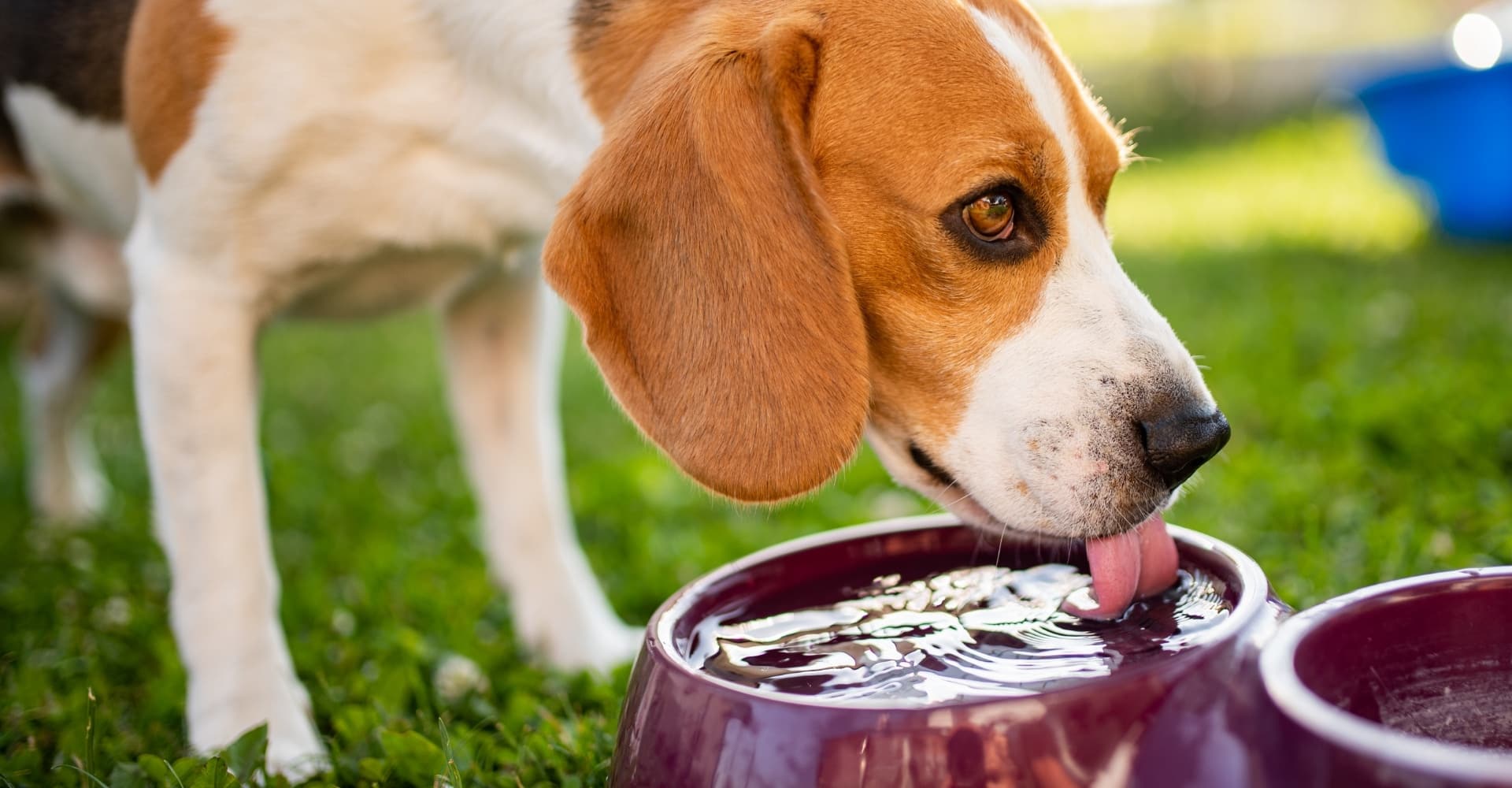Leptospirosis is a serious bacterial infection that can affect dogs, and it’s something every pet owner should be aware of. Leptospirosis is present right here in Charlotte, North Carolina and can be transmitted to humans. Because it can affect both your furry family members and your human family members alike, it’s important to know how to prevent it and protect your family. In this post, we’ll explain leptospirosis in dogs, the symptoms to watch for, how it spreads, and the steps you can take to prevent it.
What Is Leptospirosis?
Leptospirosis is a bacterial infection caused by Leptospira bacteria. These bacteria are commonly found in water and soil and can survive for weeks or even months in the environment. Dogs usually become infected when they come into contact with contaminated water, such as puddles, lakes, rivers, or even standing water in your backyard.
Once the bacteria enter the dog’s body, they can cause infection in different organs, including the kidneys, liver, and lungs, leading to serious illness. In some cases, leptospirosis can be fatal if not treated promptly.
How Is Leptospirosis Spread?
Dogs are most often exposed to leptospirosis through:
- Drinking or swimming in contaminated water
- Contact with infected animals or their urine (wildlife like rats, raccoons, and opossums can spread the bacteria)
- Exposure to contaminated soil or surfaces where infected animals have urinated
Since leptospirosis is zoonotic, this means that it is also possible for humans to become infected, especially if they come into contact with contaminated urine from an infected dog.
Symptoms of Leptospirosis in Dogs
Leptospirosis can show a wide range of symptoms, and some dogs may not show signs at all. However, the most common symptoms of leptospirosis include:
- Fever
- Vomiting and diarrhea
- Loss of appetite
- Lethargy or weakness
- Increased thirst or urination (a sign of kidney involvement)
- Jaundice (yellowing of the skin, gums, or eyes, indicating liver damage)
- Muscle pain or stiffness
- Breathing difficulties (if the lungs are affected)
Because these symptoms can also be associated with other illnesses, it’s essential to get your dog to your veterinarian at Charlotte Veterinary Hospital if you notice any signs of illness. Early diagnosis and treatment are critical to your dog’s recovery.
Diagnosis and Treatment
Diagnosing leptospirosis requires a combination of blood and urine tests to check for the presence of the bacteria and assess any damage to the kidneys or liver. If your veterinarian at Charlotte Veterinary Hospital suspects leptospirosis, they may begin treatment even before test results are confirmed to prevent the infection from worsening.
Treatment for leptospirosis typically involves antibiotics to kill the bacteria and supportive care, such as IV fluids, to help with dehydration and organ damage. The earlier the treatment begins, the better the chances of a full recovery. In severe cases, hospitalization may be necessary to provide intensive care. This disease can be deadly without treatment. This is why it is important to call Charlotte Veterinary Hospital right away if you suspect your dog has contracted this disease.
Prevention of Leptospirosis in Dogs
The good news is that leptospirosis is preventable! Here are some tips for preventing leptospirosis in your dog:
- Vaccination: One of the most effective ways to protect your dog from leptospirosis is through vaccination. Your veterinarian can recommend the leptospirosis vaccine, especially if your dog is at higher risk (such as dogs that spend time in areas with wildlife or bodies of water). Annual boosters are usually recommended to maintain immunity.
- Limit exposure to standing water: Avoid letting your dog drink from or swim in puddles, ponds, or lakes, especially if the water may be contaminated by wildlife. Provide fresh, clean water for your dog during walks or hikes.
- Keep your yard clean: If possible, reduce the presence of wildlife in your yard by sealing trash cans and removing food sources that attract animals like rodents or raccoons.
- Practice good hygiene: If your dog has been diagnosed with leptospirosis, take precautions when cleaning up after them. Always wear gloves and disinfect areas where they have urinated to reduce the risk of spreading the bacteria to other pets or humans.
Zoonotic Potential: Protecting Yourself and Your Family
As mentioned earlier, leptospirosis is zoonotic, meaning it can be passed from animals to humans. Humans can become infected by coming into contact with contaminated urine, water, or soil. Symptoms in humans are similar to those in dogs and can include fever, headaches, muscle aches, and in severe cases, kidney or liver problems.
To reduce the risk of infection:
- Wear gloves when cleaning up after your dog or handling potentially contaminated materials.
- Wash your hands thoroughly after handling your pet or cleaning any areas they’ve been.
- Clean and disinfect any surfaces or bedding that may have been exposed to urine from an infected dog.
If you or a family member experience symptoms after your dog has been diagnosed with leptospirosis, contact your healthcare provider immediately for evaluation and treatment.
Leptospirosis is a serious infection, but with proper precautions, it can be prevented. Regular leptospirosis vaccinations, limiting your dog’s exposure to contaminated water, and practicing good hygiene are essential steps to protect your pet and your family. If you suspect your dog may have leptospirosis or you want to learn more about prevention, feel free to contact us at Charlotte Veterinary Hospital. We’re here to help keep your pets healthy and happy!

